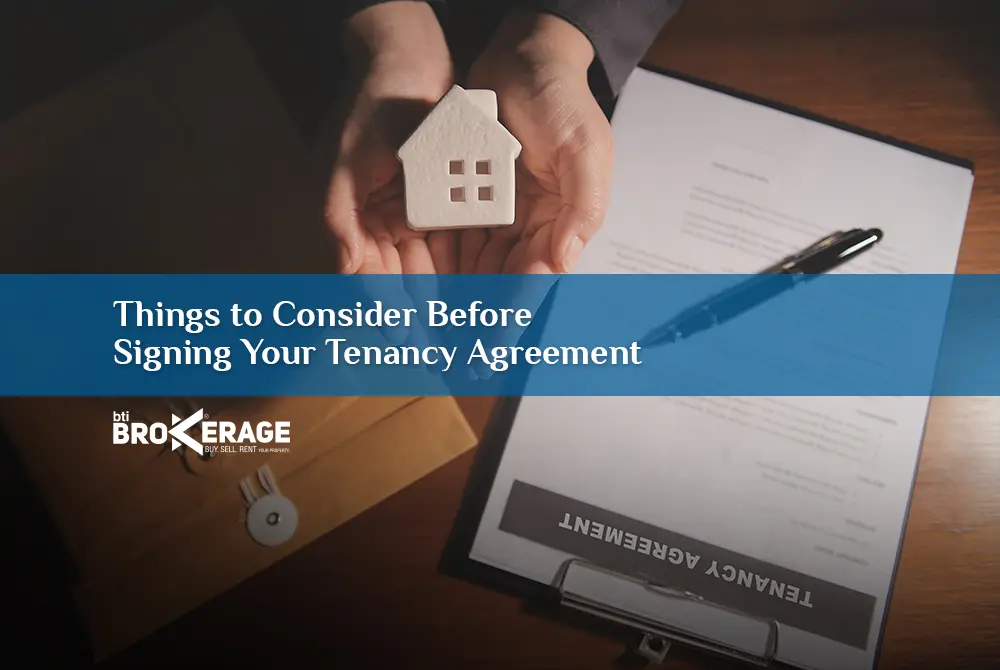Even just a few years ago homeowners and tenants used to agree upon tenancy terms and conditions verbally. Since no formal document was involved, both parties often dealt with numerous problems and turned against the very conditions they agreed upon. It also gave an unfair advantage to homeowners who hiked prices unusually, changed their conditions however they see fit, or showed bias towards some tenants. Now with the establishment of tenancy agreements, both homeowner and tenant interests are safeguarded to ensure fairness. However, as a tenant it is wise to consider a few things before signing your tenancy agreement. Being extra careful will allow you to make an informed decision and pick a home that fits your requirements.
Purpose of Tenancy
As mentioned earlier, tenancy agreements are created to protect homeowner and tenant rights. When you are renting out space, you must indicate in the agreement whether you will be using it for commercial or residential purposes. There have been too many instances where tenants have been evicted for running commercial activities in residential areas without the knowledge of the homeowners. If you will change plans some time later, it is better to inform the homeowner and also change the agreement accordingly.
Duration of Tenancy
Renting out someone’s space is a long-term investment decision. It is a commitment upon which the finances of both parties are involved. Therefore, a tenant should wisely proceed and discuss the duration of their tenancy with the homeowner. If a tenant is renting a space long-term, the homeowner should discuss how often the rent prices will be increased and by what percentage. For example, if a tenant is renting out space for five years, the homeowner can decide to hike up rent prices every year by 5%.
Amount of Rent & Payment Schedule
The tenancy agreement must mention the amount of rent a tenant will pay and the procedure of payment. A tenant may be inclined to pay rent every month, or every few months, or every year. The schedule should be decided upon with the homeowner. The agreement should mention how the payment will be made. While most homeowners prefer solid cash, some may live abroad or somewhere else, and expect tenants to pay rent via mobile financial services or bank drafts. If the tenant wants to pay the money in installments, it should be discussed with the homeowner. It is a homeowner’s right to incur fines or late charges on tenants failing to pay rent. The agreement should also include the conditions when late fee is applicable and the fine amount.
Security Deposit
When renting out space, most tenants pay the monthly rent along with an advance amount known as security deposit. The homeowner keeps this money as long as the tenant lives in that apartment. When the tenant leaves the homeowner is bound by agreement to hand over the security deposit. However, if the apartment has damages and needs repairs, the homeowner may retain the security deposit as compensation. The security deposit amount depends on the purpose of tenancy and the rent stipulated on the tenant agreement.
Use of Common Spaces
Often there are many terms and conditions of using common spaces in apartment complexes and gated communities. Tenants may not be allowed to use certain spaces which are reserved only for homeowners. These conditions must be stipulated in the agreement so that the tenant is aware of the dynamics within the residential community.
Recommending Other Tenants
If a tenant wants to leave the space before the stipulated time according to the agreement, they can recommend other tenants to the homeowner. The tenant may be able to hand over his or her tenancy to the next tenant as long as this privilege is mentioned in the tenancy agreement. Of course, the homeowner has the right to verify the authenticity of tenants under all circumstances.
Cancellation Clause
What happens when either of the parties want to terminate their agreement before the stipulated time? In that case, a cancellation clause with clear terms and conditions must be mentioned in the deed with the consent of both parties. If a party wants to cancel the contract before the expiry of the contract period, then the document should mention the conditions to be followed, notice period to inform the other party, whether to pay any compensation or not, etc.
Tenancy agreements are made to support both homeowners and tenants, with terms and conditions that support the rights of both properties. With the advent of digitization and new rules and regulations, the process of tenancy has become smoother than ever. With a sound knowledge of property rules and conditions of tenancy agreements, both homeowners and tenants can make better decisions regarding their homes.



